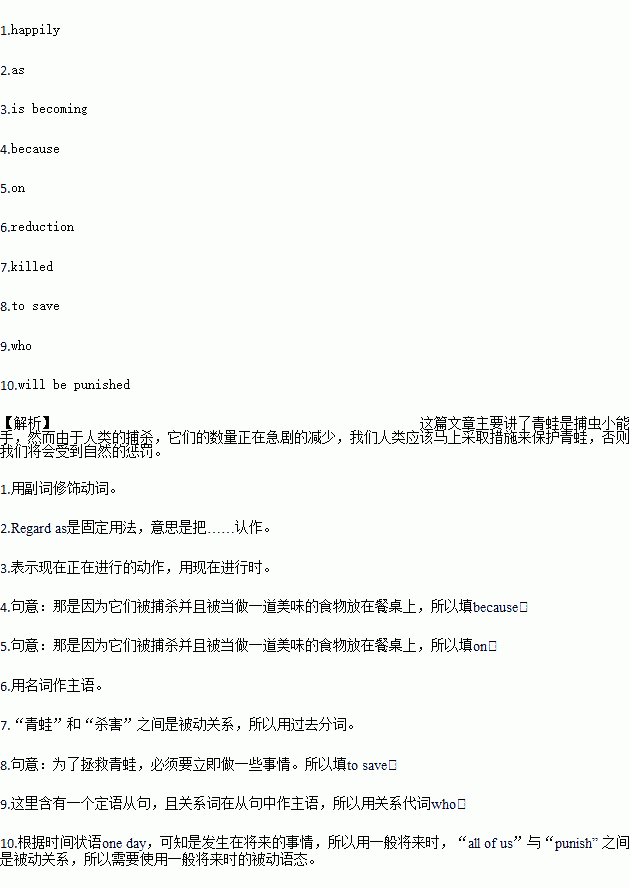题目内容
If you go out to the fields at night spring or summer, you can hear singing1.(happy)here and there. It seems as if they were performing a field concert.
The frog is a beneficial creature that does good to human beings. They can catch fast-moving insects. Each frog eats a large number of pets that are harmful to crops. This little creature is regarded 2.the natural enemy of pests.
But now the number or frogs3.(become)smaller and smaller. This is4.they are killed and put5.the table as a delicious dish by their chief enemy, human beings. It is cruel, isn’t it? The cause of the rapid6.(reduce)of frogs is that farmers use pesticide(杀虫剂)to kill pests ,and then frogs get 7.(kill)as a result of eating the poison-killed insects.
Something must be done without delay8.(save)frogs. If we don’t punish those 9.sell and kill frogs to make money, then one day all of us 10.(punish)by nature for failing to save frogs.

